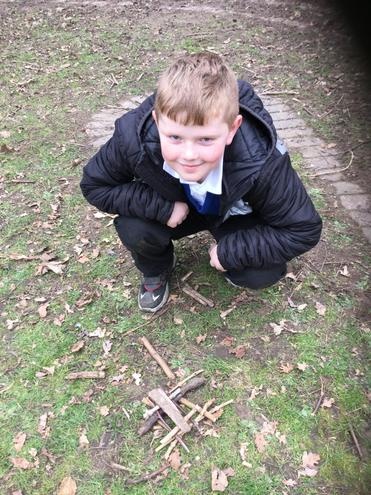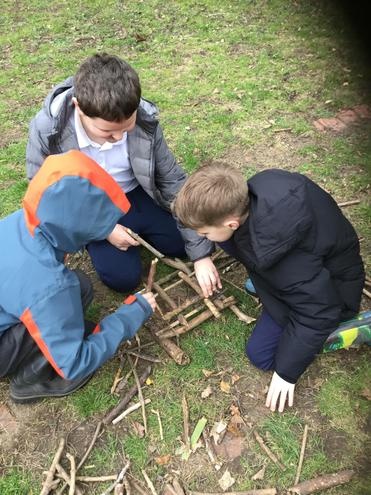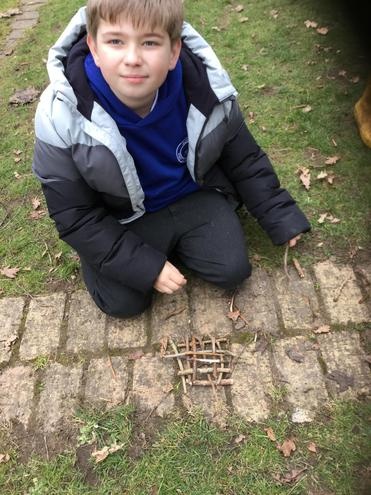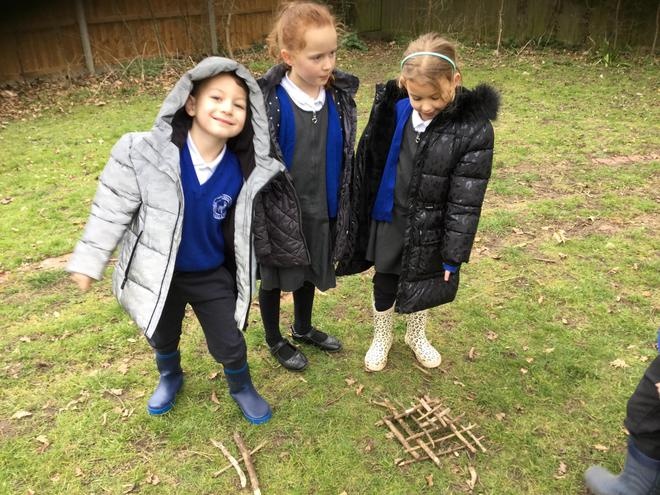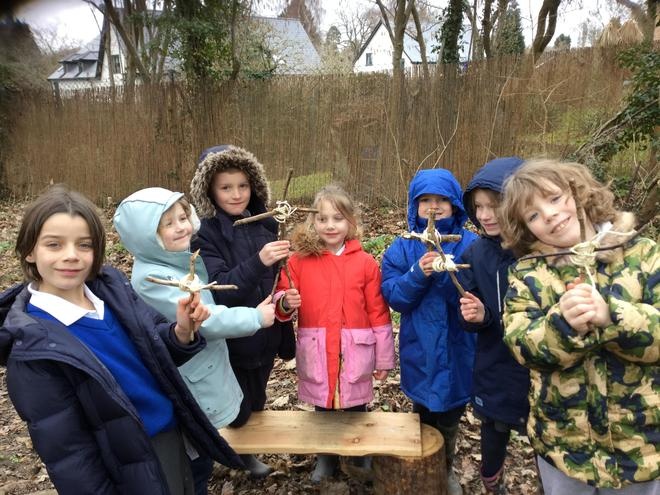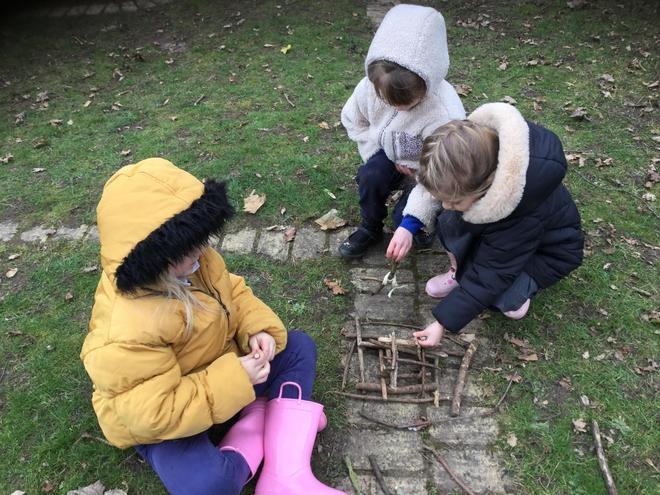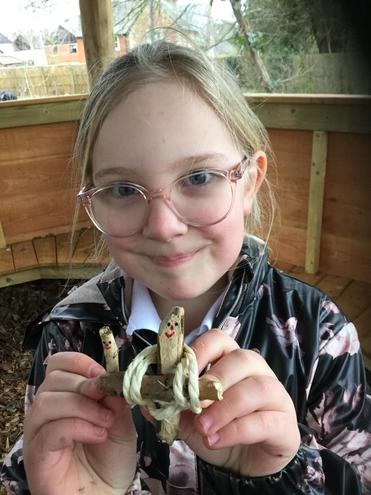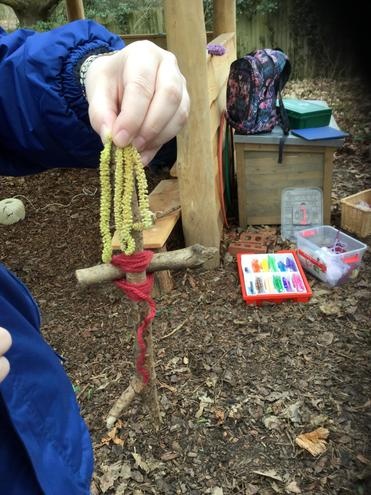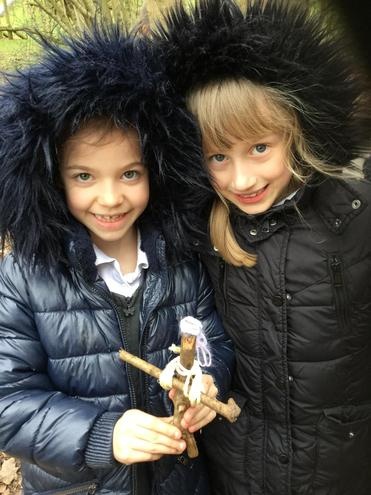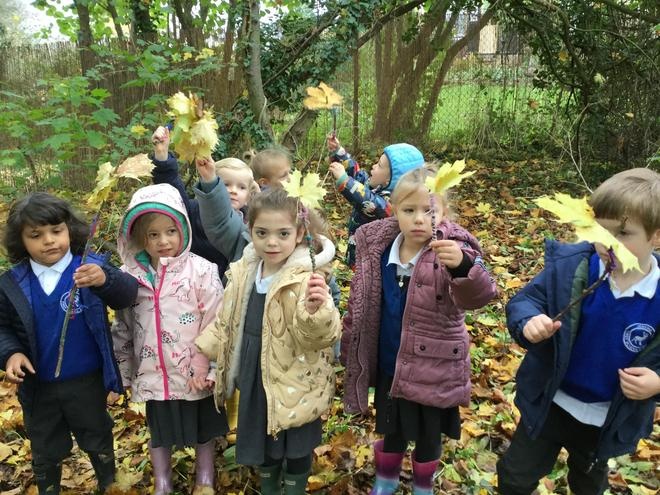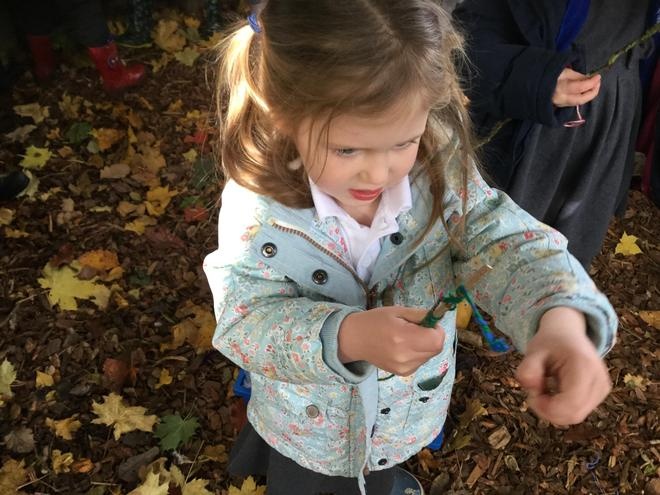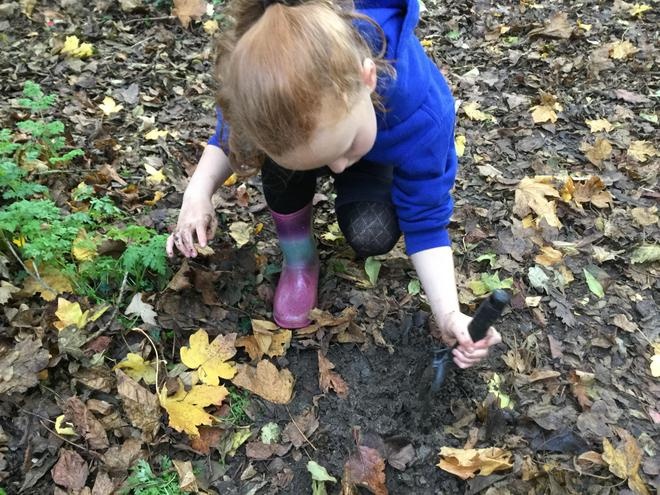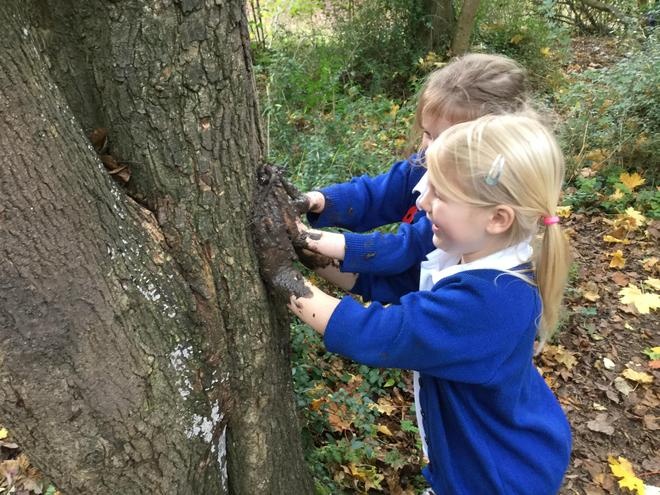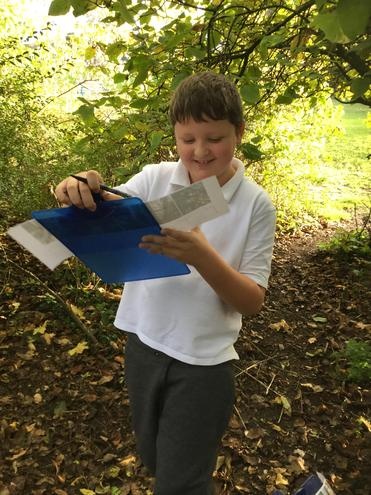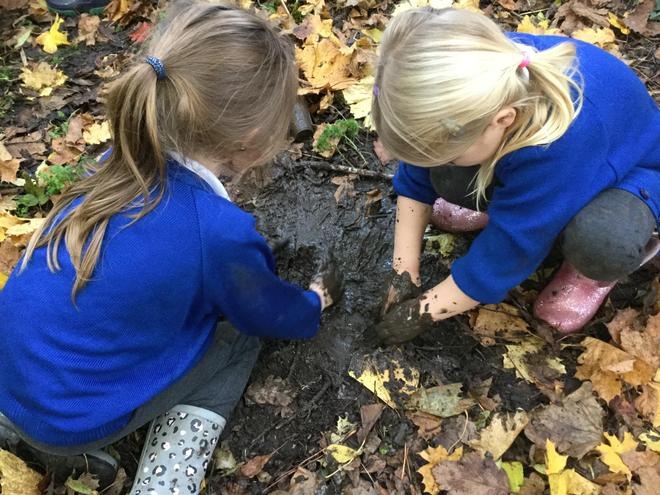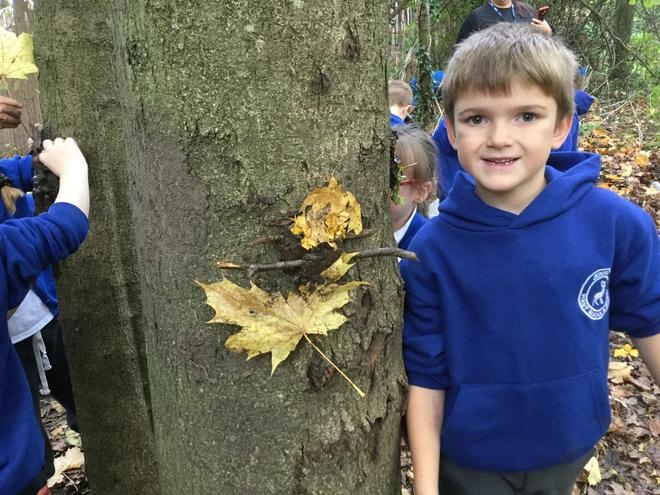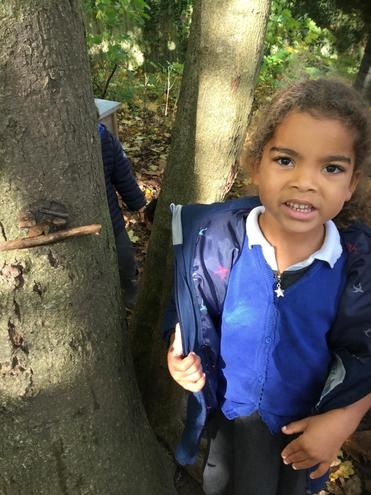Forest School
Forest school making stick people and towers
Busy down in the woods at Forest School
What is Forest School at Jenyns?
Forest school involves a sequence of regular sessions which all take place in our wooded area and develop the relationship between the learner and the natural world.
Initial sessions establish clear physical and behavioural boundaries to enable all sessions to be safe.
Each session includes observations which support the planning of future sessions.
The children learn about how to care for their environment as well as how to identify seasonal changes and features of their surroundings.
Forest School gives children the time and space to develop skills and confidence through active exploration in the outdoors environment. Activities are introduced and supported by practitioners who then step back to observe the children as they follow their initiative.
Forest school activities are designed to develop the physical, social, cognitive, linguistic, emotional and spiritual aspects of the learner.
The holistic development fosters resilient, confident, independent and creative learners.
Children are given opportunities to take supported risks appropriate to the environment and themselves, to be brave and challenge themselves to try new things. Forest school embraces a growth mindset.
Forest school is a learner-centred pedagogical approach which responds to the interests and needs of learners. Skills are modelled and built upon through carefully planned programmes.
Play is recognised to be of great importance for learning and development in Forest School. Children are encouraged to make choices and follow their own interests and explore ideas.
A key feature of each session is reflection through which learners and practitioners recognise and understand their own achievements and develop emotional intelligence.
What kinds of activities will the children do at Jenyns?
The children will play lots of games to develop teamwork, cooperation and communication skills. They will climb trees, carry logs and run to support physical development. Small achievable tasks, paired activities and the carefully planned sequence of activities will develop self-esteem. They will develop confidence by trying new things and sharing ideas, mutual encouragement and will take pride in their own achievements such as making a shelter. At the end of each session, reflection on strengths, challenges and goals will support development of emotional intelligence. Successes and failures, adapting ideas and responding to different kinds of weather will foster resilience and encourage the children to persevere to achieve goals. Activities such as making puppets and exploring their own emotions and feelings will promote spiritual growth. Creativity is encouraged through open-ended tasks such as making a wand, a tree spirit/creature with forest floor litter (leaves, twigs, stones and buds), weaving wool and exploring imaginative play.
Learning through self-directed activity, making own choices and self-challenging at a level they feel comfortable with encourages independence. The children are given time to explore their own ideas and problem solve.
What are the benefits?
- The children develop health and fitness outdoors in the fresh air.
- Well-being is enhanced by outdoor activity.
- Life skills are developed through Forest School; self-confidence, resilience, perseverance, creativity, independence, decision making and emotional intelligence are just a few of these.
- Children learn skills and acquire knowledge at the level and rate that is appropriate for each individual.
- The constraints of the classroom are removed.
- Time and space are provided for individual enquiry and exploration in a multi-sensory way which develops fine and gross motor skills.
- Different areas of learning are linked through hands-on discovery and Forest School supports many areas of the National Curriculum and EYFS framework.
Health and Safety
- The health and safety of all participants is of paramount importance.
- To ensure all risk is minimised:
- The ratio of adults to children in-line with school policy will ensure the safety of all involved.
- Risk/benefit assessments are carried out.
- Staff are first aid trained.
- First aid and emergency equipment is on site.
- A health and safety policy is in place and regularly reviewed.
- Activities involving use of tools or fire are overseen by a qualified level 3 Forest School practitioner.
- Children will wear suitable clothes and footwear. This means arms and legs are covered and waterproof jackets are worn if wet, and footwear is suitable for rough or muddy terrain (trainers or wellies).
Frequency of sessions
EYFS will have a session each week
KS1 & 2 will have six sessions in consecutive week blocks during the year.
Sessions will usually take place on the school site but may involve local walks.
SJB August 2024
"Forest school core beliefs can be summarised as, learners are all:
- equal, unique and valuable
- competent to explore & discover
- entitled to experience appropriate risk and challenge
- entitled to choose, and to initiate and drive their own learning and development
- entitled to experience regular success
- entitled to develop positive relationships with themselves and other people
- entitled to develop a strong, positive relationship with their natural world"
forestschoolassociation.org

